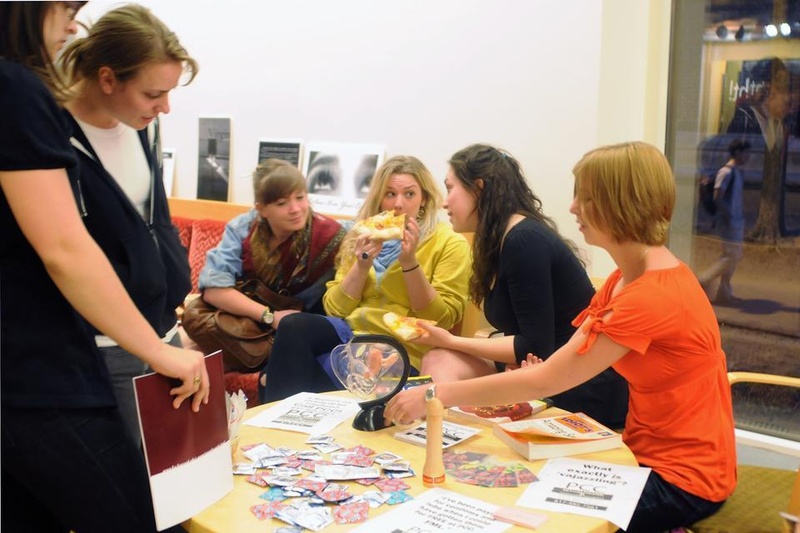A banner proclaiming “Take Back the Night” hung above the women and men gathered in Ticknor Lounge at last night’s kickoff event for Harvard’s Sexual Assault Awareness Month programming.
The words “Take Back the Night” refer to an annual, nationwide event aimed at empowering survivors, raising awareness, and fostering a community for women who have faced sexual assault.
Harvard’s activities this month—organized by the Office of Sexual Assault Prevention and Response, Harvard Men Against Rape, and the peer counseling group Response—will feature a series of events on topics ranging from date rape to the media’s construction of masculinity and ending with a candlelight vigil where sexual assault survivors can share their stories and find support from the community.
“This month is about taking back the community and making it safe and secure for everyone to walk during the night,” said Tamar Holoshitz ’10, an OSAPR volunteer and one of the organizers of the sexual assault awareness programming. “Safety should not be a privilege.”
OSAPR Director Sarah A. Rankin said that many people do not realize that sexual assault is prevalent on Harvard’s campus. “This month is dedicated to raising a dialogue about sexual assault and also self-respect, communication, and consent. We want to show that sexual assault is preventable, and that men care a lot more about preventing this than people may think,” Rankin said.
Jack J. Holuba ’13, a football player who loomed a head or more taller than most of the women in the room, said that it was important to combat portrayals of masculinity that reinforce stereotypes that objectify women.
“We want to let people know that the lifestyle all about getting with girls and putting another notch on the belt is not acceptable,” said Holuba, who is also a member of Harvard Men Against Rape and volunteers in the OSAPR office. He added that a major objective of Sexual Assault Awareness Month is not only to raise awareness for victims and people at risk, but to create sensitivity around issues of sexual assault.
“We need to change the culture that thinks it’s okay to say things like ‘that midterm raped me,’” Holuba said.
Holoshitz said that it was important that men who are concerned about sexual assault help contribute to the solution, particularly on college campuses.
“Our goal is to create a space where survivors can come forward and seek help and feel their community is supporting them,” she said. “We’re trying to put a public face to this issue and educate the campus about prevention.”
—Staff writer Alice E.M. Underwood can be reached at aeunderw@fas.harvard.edu.
Read more in News
Scholar Discusses Poverty in Arab States













